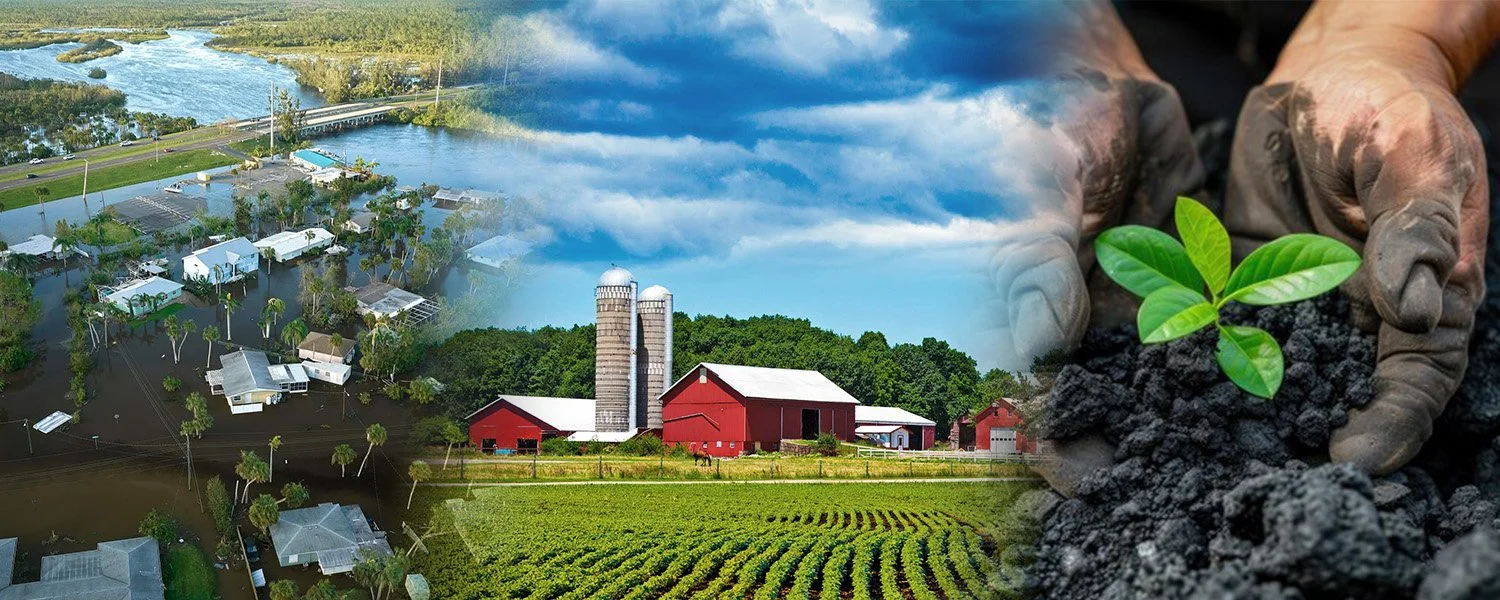Extreme Weather: Its Impact on Agriculture
A National Security Perspective
In this compelling dual interview, *Extreme Weather* host Chris Gloninger speaks with two national leaders tackling climate change from opposite but deeply connected fronts: Admiral Michael Franken, a Department of Defense official focused on climate-related security risks, and former U.S. Secretary of Agriculture Tom Vilsack, now CEO of the World Food Prize Foundation. Together, they unpack how extreme weather, drought, and climate disruption are no longer distant threats—they’re here now, hitting America’s agricultural backbone and compromising global food stability.
Admiral Franken calls climate volatility “the new insurgency,” while Vilsack emphasizes economic incentives that reward farmers for sustainable practices. From aquifer depletion and collapsing livestock systems to global food insecurity and geopolitical unrest, they make it clear: this is not a challenge for 2050. It’s a crisis unfolding today.
At a time when climate change is being scrubbed from federal policy and scientific agencies are facing severe cuts, this conversation is both a wake-up call and a roadmap. Whether you're a policymaker, producer, or consumer, the message is clear: the future of food is the future of national security. And the window for resilience is closing fast.
A Conversation Between Chris Gloninger, Host of “Extreme Weather”, Admiral Michael Franken, Department of Defense leader on Extreme Weather, and Secretary Tom Vilsack, former U.S. Secretary of Agriculture and CEO of the World Food Prize Foundation
The Strategic Threat to Agriculture
Chris Gloninger: Admiral, with extreme weather becoming the norm, what’s the biggest risk to America’s agricultural backbone?
Admiral Franken: The challenge is two-fold: immediate disruption and long-term destabilization. Floods compromise infrastructure and shift growing regions. That’s not just a food security risk—it’s a national stability issue.
Chris Gloninger: Secretary Vilsack, how does that align with what you're seeing?
Secretary Vilsack: In the Midwest, we frame the issue around opportunity. Climate-smart farming—cover crops, rotational grazing, no-till—improves soil and opens new markets. But without sustained investment, those gains are at risk.
The Water Crisis
Chris Gloninger: We’ve heard a lot about water access. Is that becoming a national crisis?
Admiral Franken: Absolutely. We’re in a quiet crisis. Aquifers are drying, water rights are flashpoints. We’re pumping yesterday’s rainfall to survive today’s heat.
Secretary Vilsack: We incentivized cover crops through crop insurance because they help retain water. But we also need R&D—CRISPR, gene editing—to build resilient crops for these extreme conditions.
Insurance, Incentives & Innovation
Chris Gloninger: There’s debate: stick with crop insurance or shift to climate-resilient tech?
Admiral Franken: Insurance without adaptation is like patching a boat you refuse to steer. Resilience must be systemic—smart sensors, weather data, adaptive seeds.
Secretary Vilsack: Exactly. Our USDA Climate-Smart Ag Initiative paid farmers to reduce emissions. It created new revenue, improved soil, and reduced climate risk. But it needs to continue.
Climate, Conflict, and Global Food Insecurity
Chris Gloninger: How does food security tie into global conflict?
Admiral Franken: Wheat exports from Ukraine plummeted and chaos followed in Africa and Asia. If the U.S. becomes unreliable due to climate, expect global instability.
Secretary Vilsack: Food insecurity is a root driver of migration and war. 85% of conflict zones are also food-insecure. Right now, 733 million people go hungry.
Messaging Matters
Chris Gloninger: How do we talk to farmers who don’t believe in climate change?
Secretary Vilsack: We asked about 'climate change'—they said no. Asked about 'weather variability'—they said yes. It’s about language. The science is the same.
Admiral Franken: And rural America needs climate intelligence—localized, in plain English, with broadband strong enough to support smart tech.
Final Thoughts: The Call to Action
Chris Gloninger: If you had every policymaker’s attention—what would you say?
Admiral Franken: You don’t win tomorrow’s wars with yesterday’s playbook. Agriculture is our front line. Invest in it. Defend it. Or lose the heartland.
Secretary Vilsack: Every problem has opportunity. Let’s stop dividing. Let’s fix this together. Resilience must be restored and reimagined.



